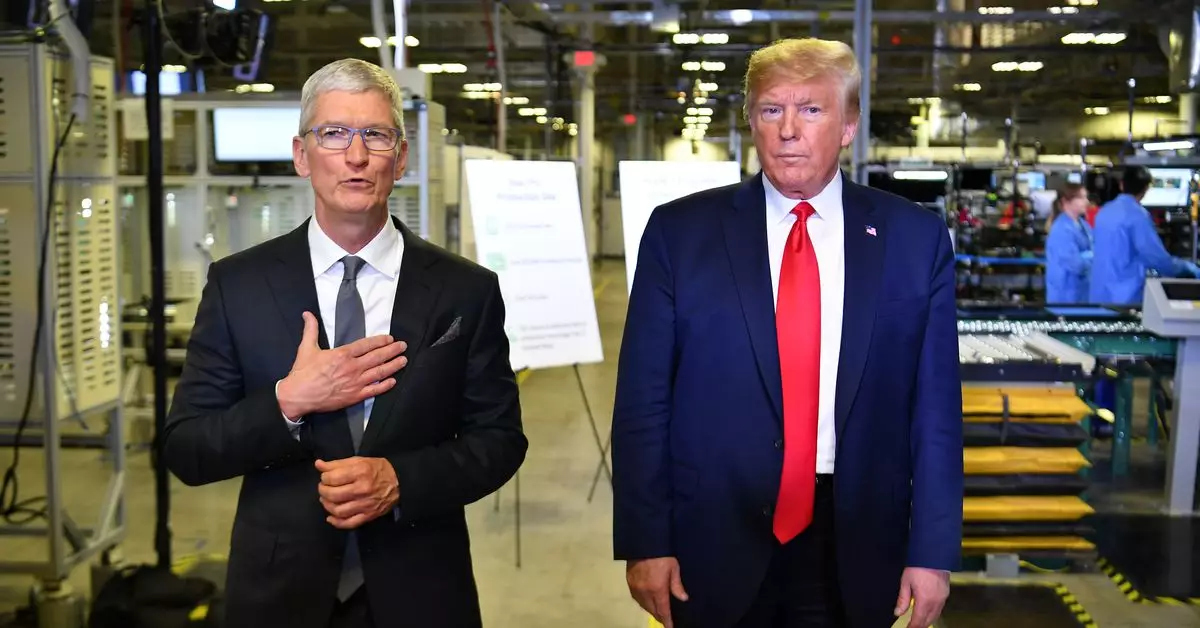In the ever-evolving landscape of technology and politics, the symbiotic relationship between corporate leaders and government officials holds immense significance. A prime example of this dynamic is Apple CEO Tim Cook’s adept navigation of his relationship with Donald Trump during the latter’s presidency. This connection has become a focal point for other technology firms aspiring to achieve similar success in influencing political decisions. Understanding Cook’s pioneering methods provides valuable insights for business leaders attempting to bridge the gap between their corporate objectives and political realities.
Unlike many of his peers, who often resort to traditional lobbying tactics or delegate discussions to government affairs teams, Cook’s strategy was characterized by direct engagement. Reports indicate that he preferred to reach out to Trump personally, utilizing phone calls and dining experiences to establish rapport. This direct communication allowed him to present Apple’s needs in an uncomplicated manner. By focusing on a single data point during meetings, Cook ensured discussions remained concise and directed—avoiding the often chaotic nature of political negotiations.
This methodology underscores a strategic mindset: simplifying complex issues to foster understanding and consensus. This focus not only helped Cook communicate effectively but also enabled him to build a strong personal relationship that was mutually beneficial. By framing discussions around shared interests, particularly those aligning with Trump’s political goals, Cook effectively enhanced Apple’s standing within the administration.
Cook’s engagement with Trump wasn’t devoid of controversy. Critics argue that he played his cards close to his chest, particularly by not publicly correcting Trump’s inflated claims regarding Apple’s manufacturing investments, such as the Austin plant. This reluctance to dispute Trump’s narrative highlights the complexity of political relationships—where maintaining favorable connections sometimes necessitates compromises in authenticity.
Furthermore, Cook’s tactics have led to a paradigm where company leaders appear increasingly willing to flatter political figures to secure favorable outcomes. Such an environment raises ethical questions surrounding integrity and truthfulness in corporate governance, particularly in light of recent communications from other tech giants like Google and Meta, whose executives reportedly sought to align themselves with Trump by showering him with praise.
The efforts of Cook and other tech leaders underscore a critical lesson for future corporate executives: personal connections often hold more weight than traditional lobbying. As the landscape continues to shift, forging genuine relationships with policymakers will likely become a cornerstone of effective corporate strategy. The following of Cook’s template by executives from companies like Boeing and FedEx speaks volumes about the new norms taking shape in political influencing.
Tim Cook’s strategic maneuvering during Trump’s presidency serves as both a blueprint and a cautionary tale for corporate leaders venturing into the political arena. While personal relationships can drive favorable outcomes, they also necessitate a delicate balance of ethics, influence, and authenticity. The consequences of this intricate dance will resonate throughout the tech industry and beyond for years to come.

